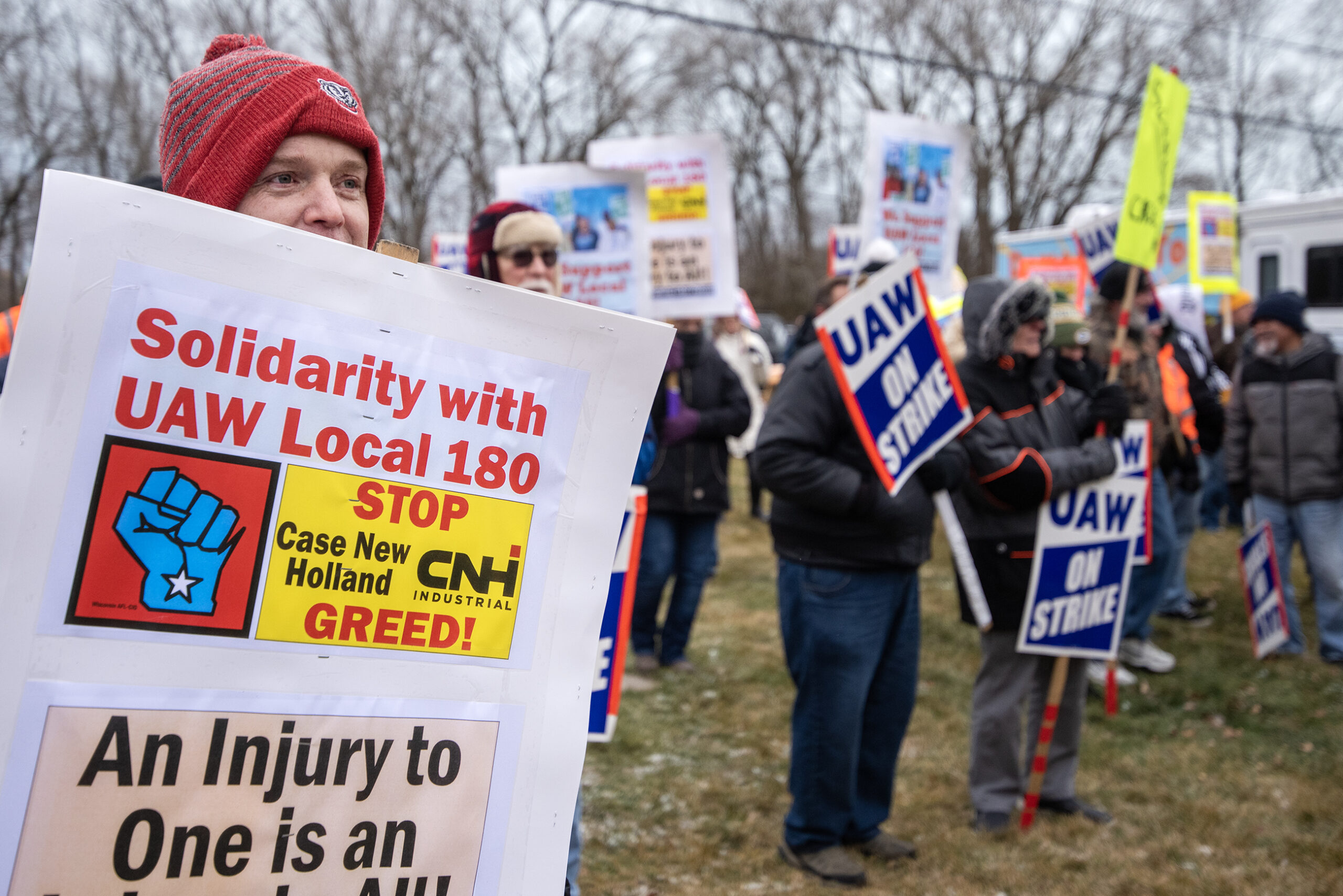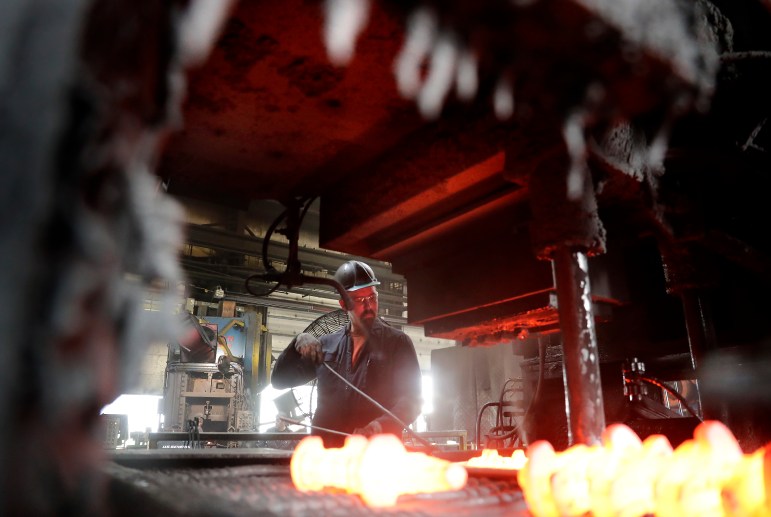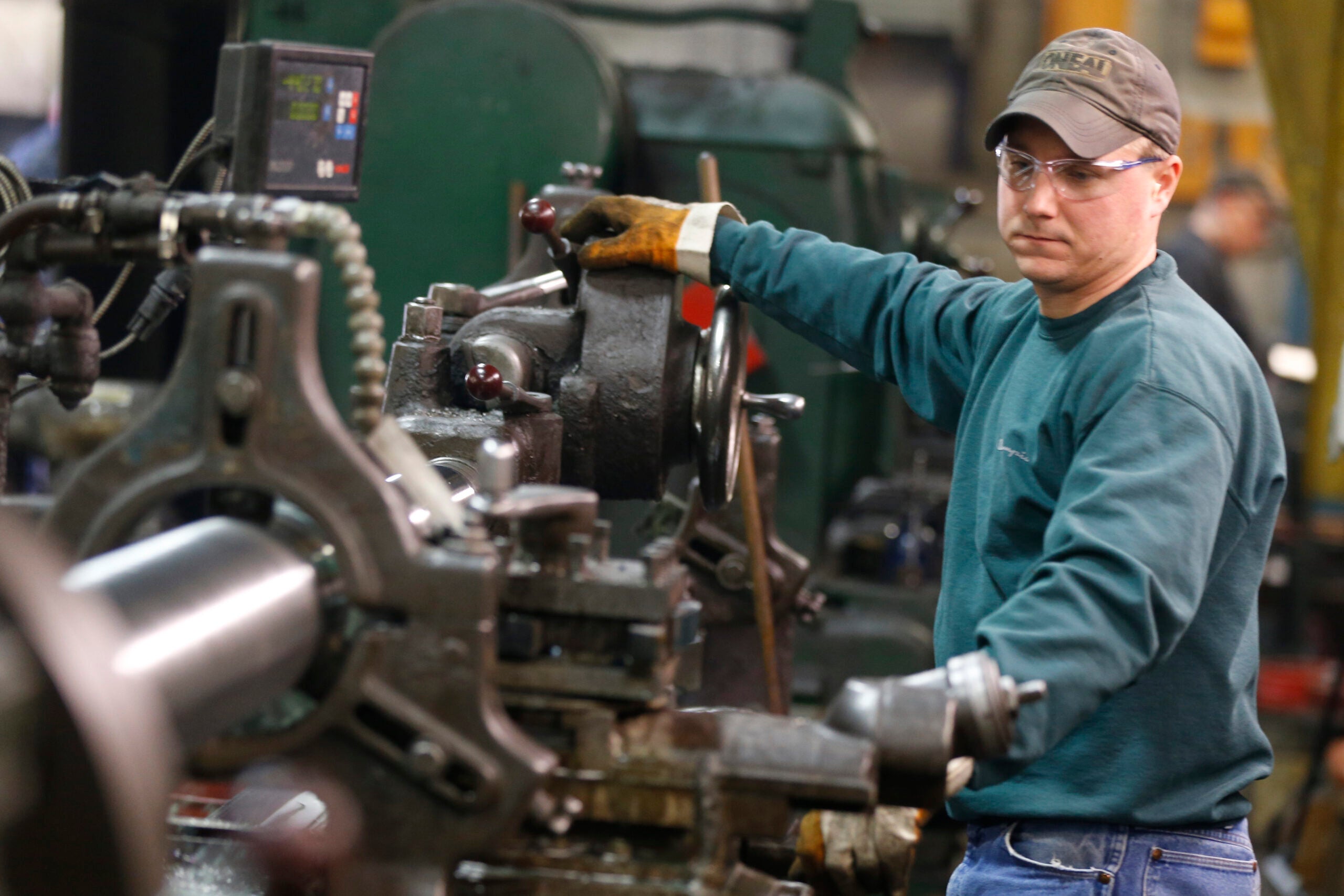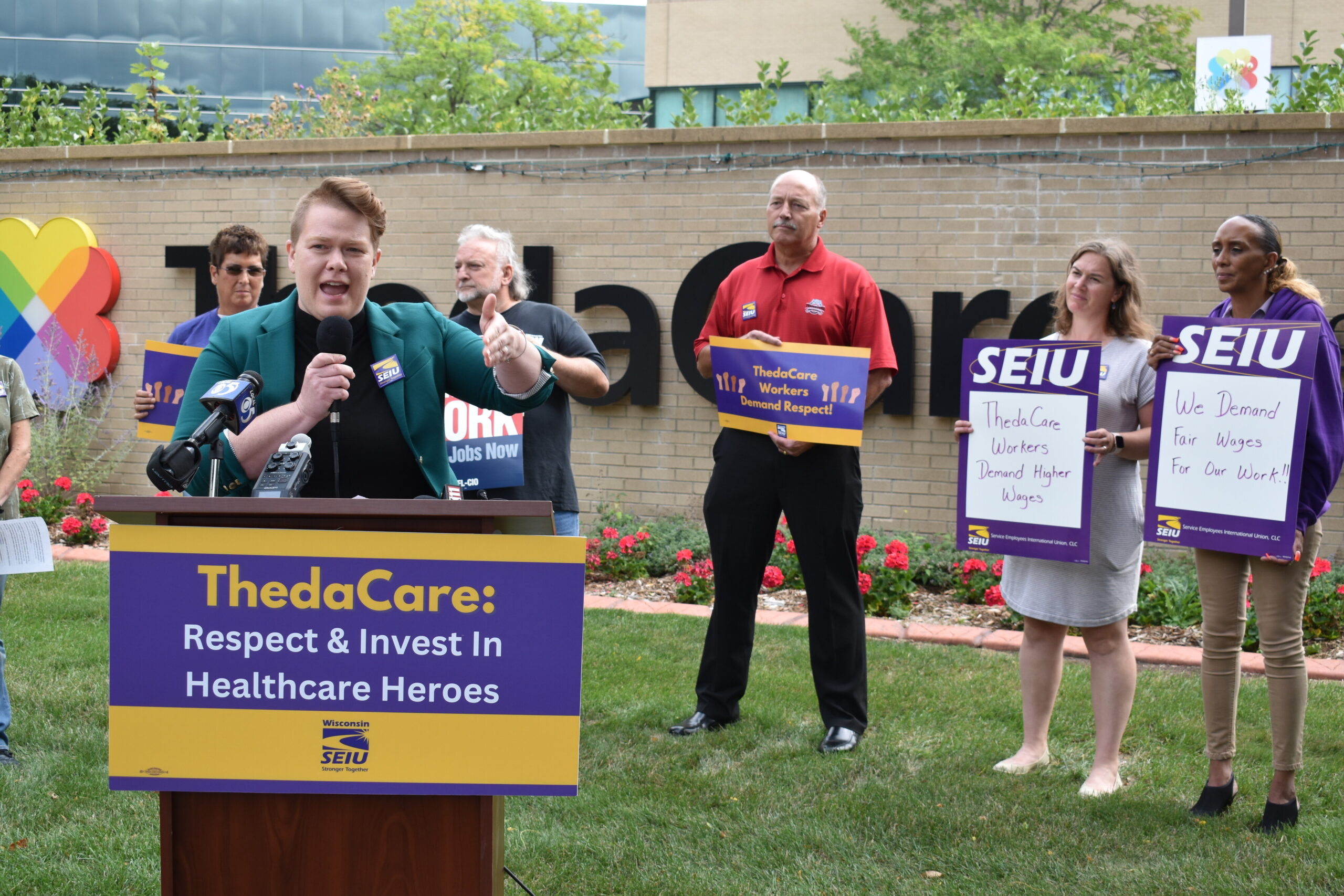Economic recovery after the COVID-19 pandemic will depend on providing workers better wages, consistent schedules and stronger benefits, including accessible health care. That’s according to a new report from University of Wisconsin-Madison.
The latest State of Working Wisconsin report includes analysis on a number of different aspects of the labor market, including job numbers, wages and unionization.
The report from COWS, formerly the Center on Wisconsin Strategy, indicates Wisconsin still has 114,000 fewer jobs available as of July than it did before the onset of COVID-19. Leisure and hospitality in particular have been affected, losing 49,600 jobs. According to the report, that has disproportionately affected women and people of color.
Stay informed on the latest news
Sign up for WPR’s email newsletter.
Laura Dresser, the associate director of COWS, said the problems in Wisconsin’s job market came about well before the pandemic.
“Many of the problems that the State of Working Wisconsin has documented for more than two decades were really exposed and exacerbated by the COVID pandemic and its impact on work,” said Dresser. “The very workers that have faced the worst wage trends, faced the hardest conditions in their jobs were the workers who were either unemployed, lost their work through the pandemic, or who faced exposure in their jobs and could not be protected from exposure.”
The report indicates the state of the job market puts workers in a precarious position.
“A weak labor market tips the balance of power toward employers because workers are easier to replace,” the report reads. “Job losses on this scale make it harder to secure overtime or ask for time off, harder to complain about sexual harassment or racist coworkers, and harder to secure wage increases.”
Employers, however, are still having to find creative ways to bring new workers on board, as WPR previously reported.
“One of the things we’re seeing emerge is that workers coming back to work expect a little more out of their jobs and can find jobs that maybe offer better hours or they can ask for better hours and we see some tightness in the leisure and hospitality labor market,” said Dresser. “We know that employers are looking for workers, and maybe we create more sustainable jobs through policy and through workers demanding better.”
Greg Marcus is president and CEO of the Milwaukee-based Marcus Corporation, which operates over 1,000 movie theater screens and manages 19 hotels across the country. At a Milwaukee Press Club event Thursday, Marcus said the company has had to increase pay and offer more incentives to workers.
“We’ve had to do all the things to react to what’s going on the market,” said Marcus. “I don’t know how many people just took summer vacation. I do think there is a group of people who said, ‘You know what, it’s been a rough year, I’ll get back to work after we get back into this, into the fall.’”
Marcus said the company had to lay off around 4,000 of its 10,000 employees during the pandemic.
Dresser said economic recovery in Wisconsin will depend on supporting workers, and keeping them housed and fed.
“If we’re going to call jobs essential, then essential workers should have all the things that make life possible, like health insurance, decent hours, predictable schedules and a decent wage,” said Dresser. “I think we want to seize this opportunity to find a new normal, especially around the structure around low wage jobs.”
Dresser said raising wages would also help reduce racial disparities in worker pay.
“By lifting the floor of the labor market, you lift the workers and move them closer to the middle, and that’s another policy that would really make a difference.” said Dresser.
Dresser said it’s particularly important to pay attention to the needs of the Black community, especially in places like Milwaukee, and ensure that programs bringing resources to such communities are able to help close the gap.
Ultimately, Dresser said the foremost problem is the continued spread of COVID-19.
“I think some people want to pretend that the real problem is a mask mandate or a shutdown,” said Dresser. “The real problem is the virus, and we have to solve that problem before the economy, you know, kind of blossoms.”
Wisconsin’s unemployment rate has hovered around 4 percent since the start of the year. Programs like pandemic unemployment benefits came to an end over the weekend.
Editor’s note: WPR’s Corrinne Hess contributed reporting to this story.
Wisconsin Public Radio, © Copyright 2024, Board of Regents of the University of Wisconsin System and Wisconsin Educational Communications Board.






